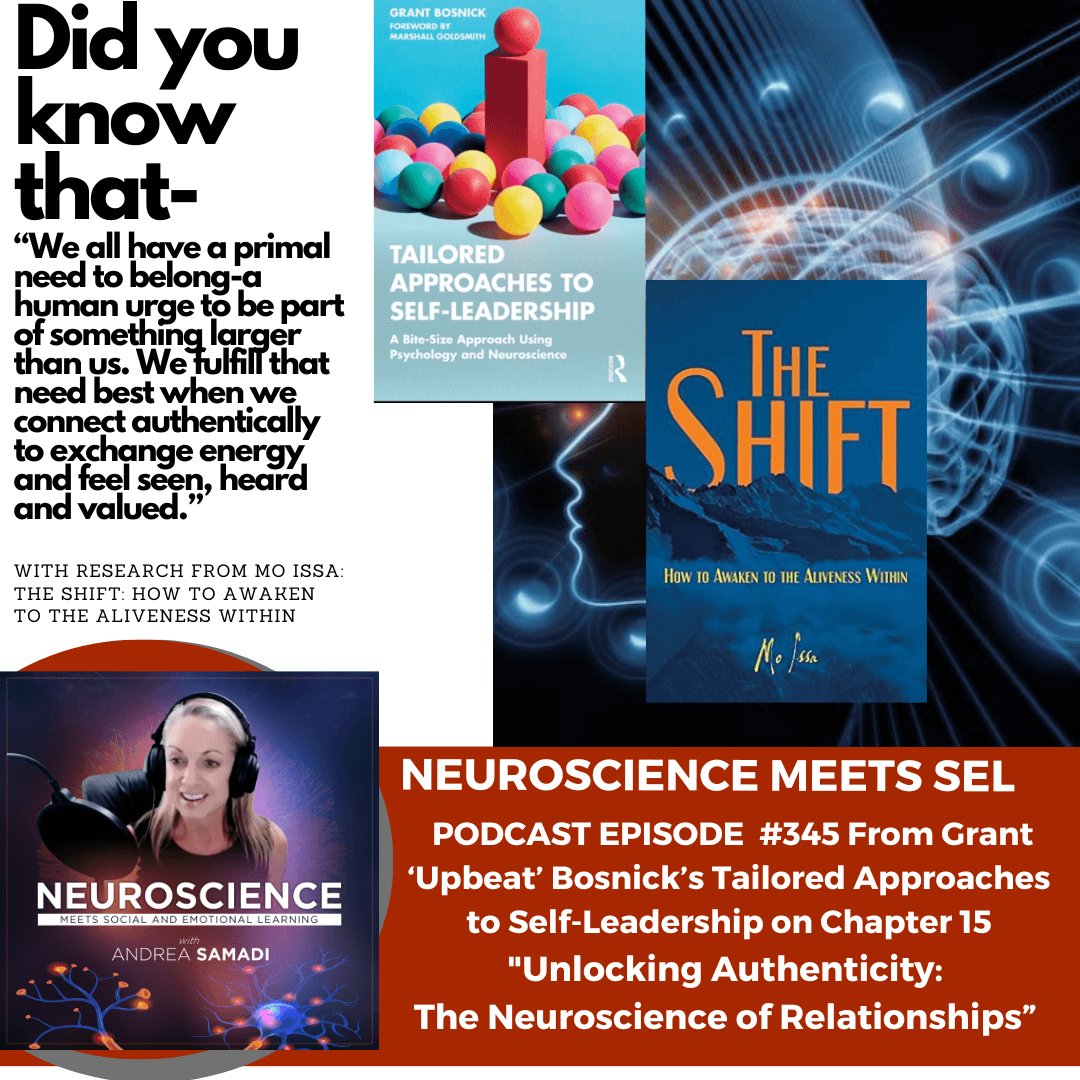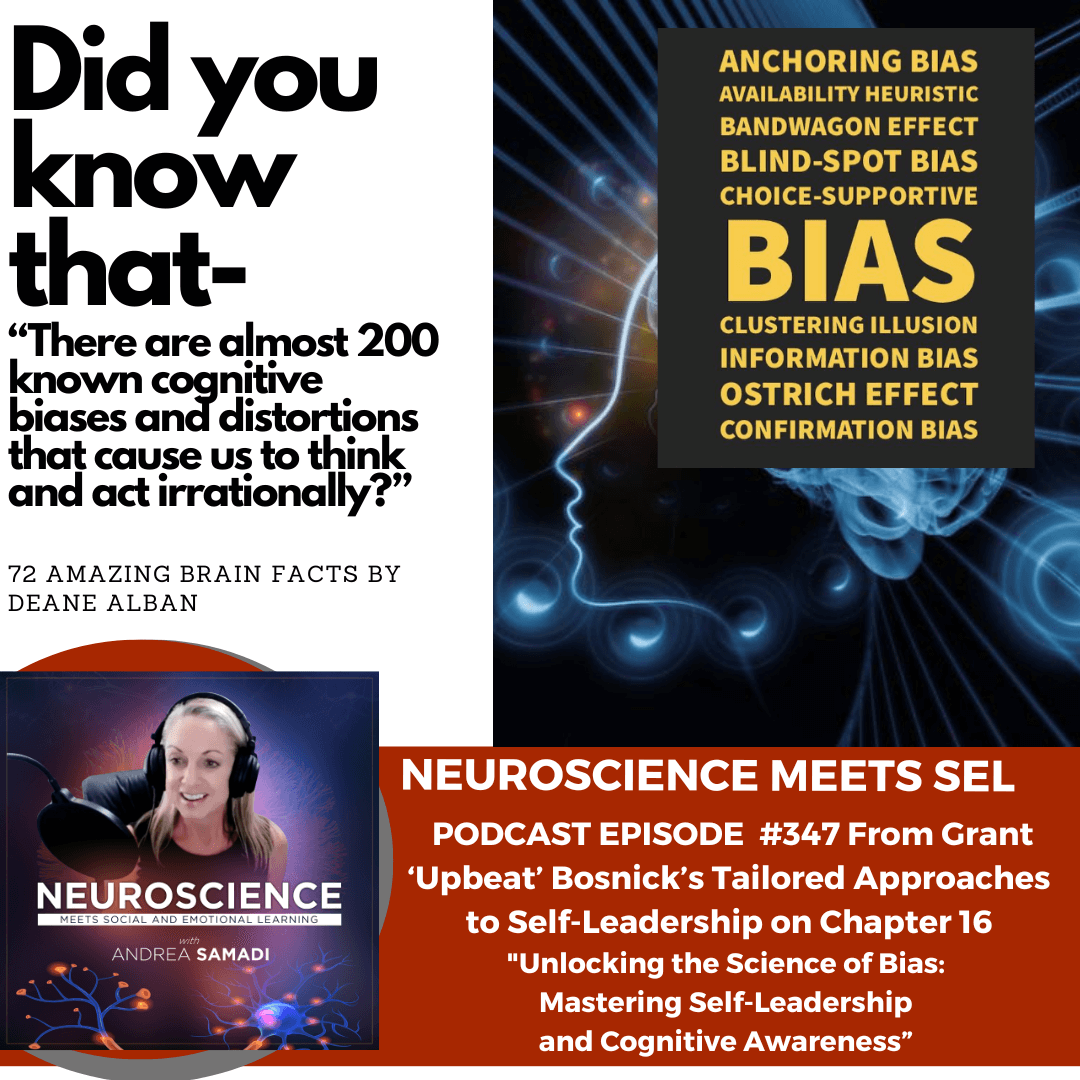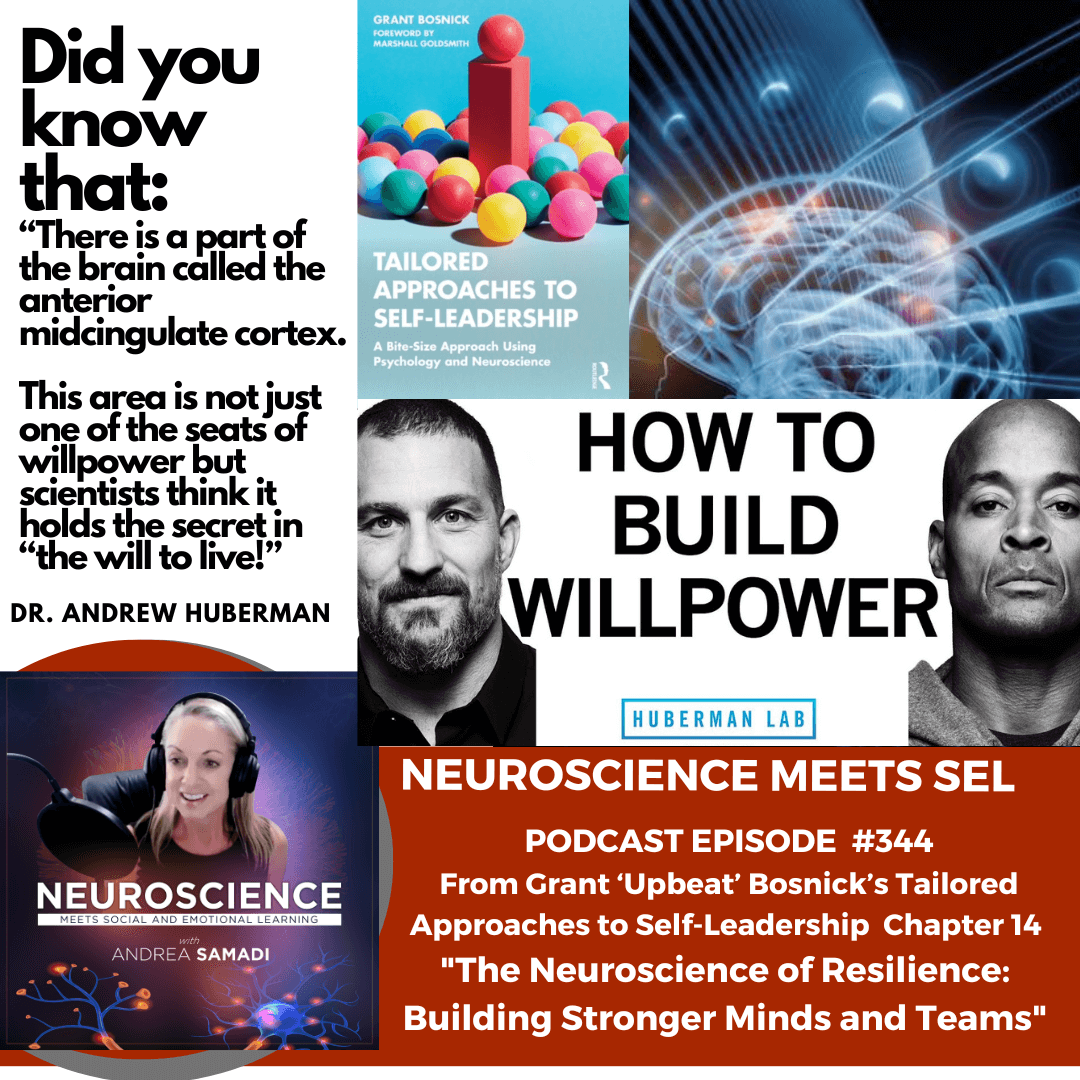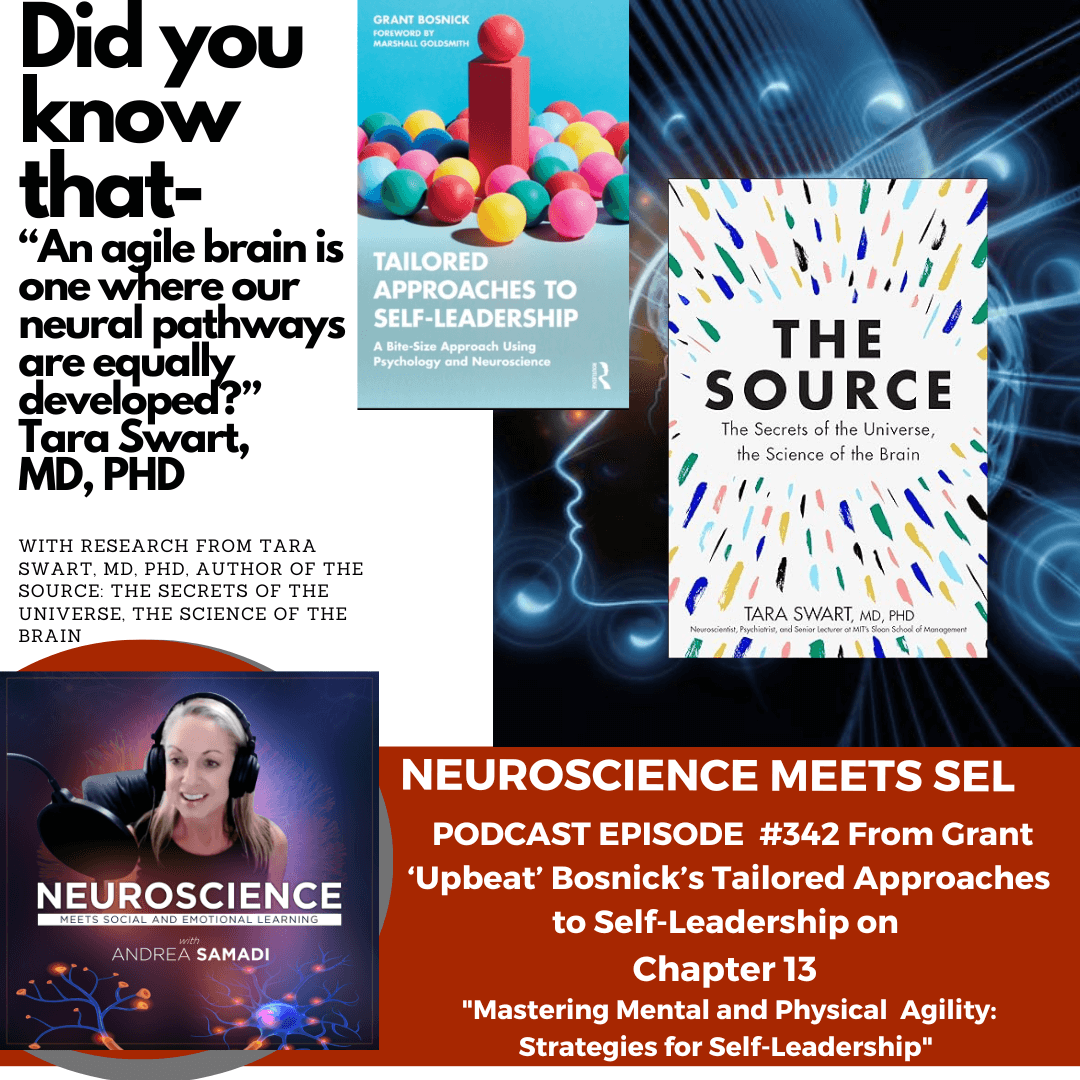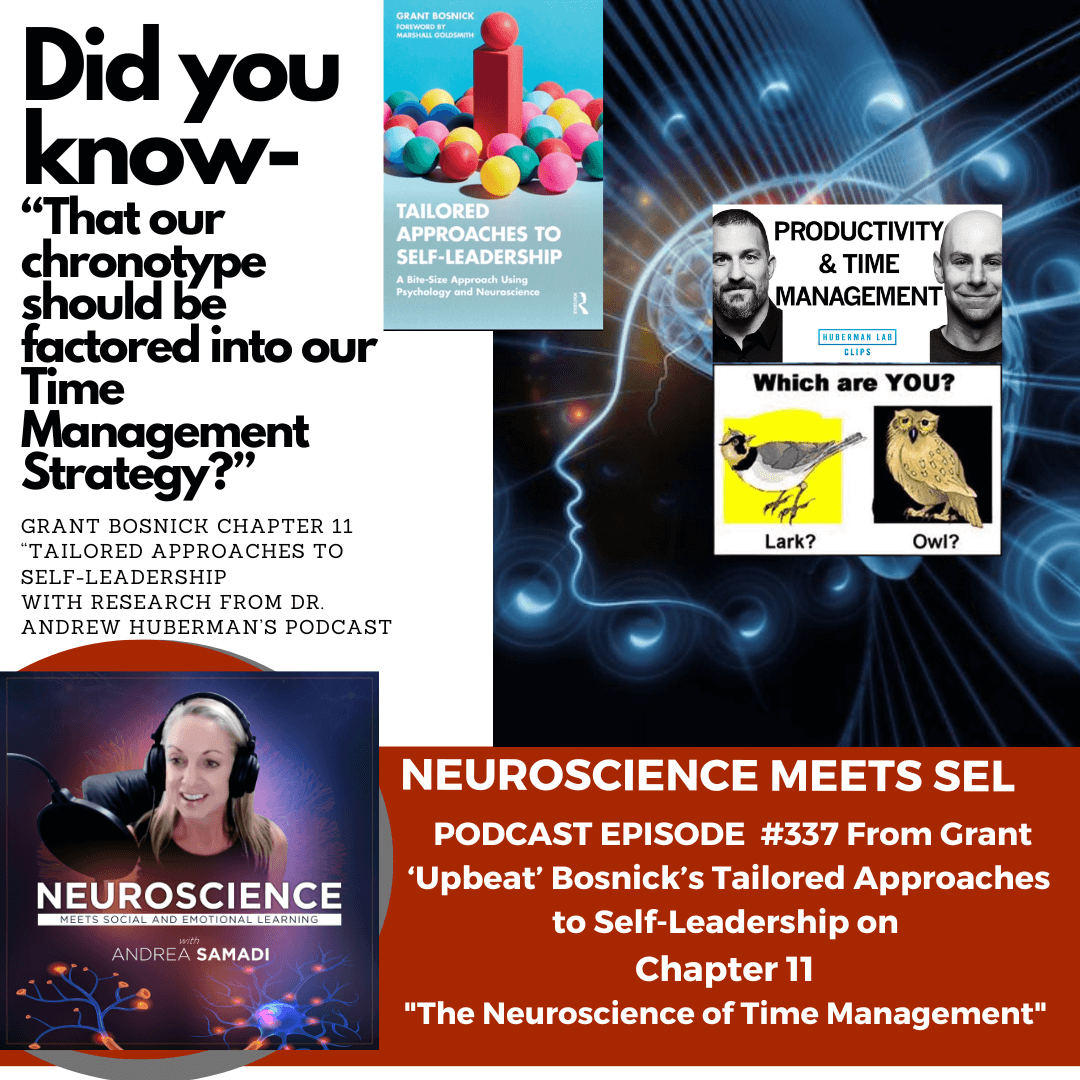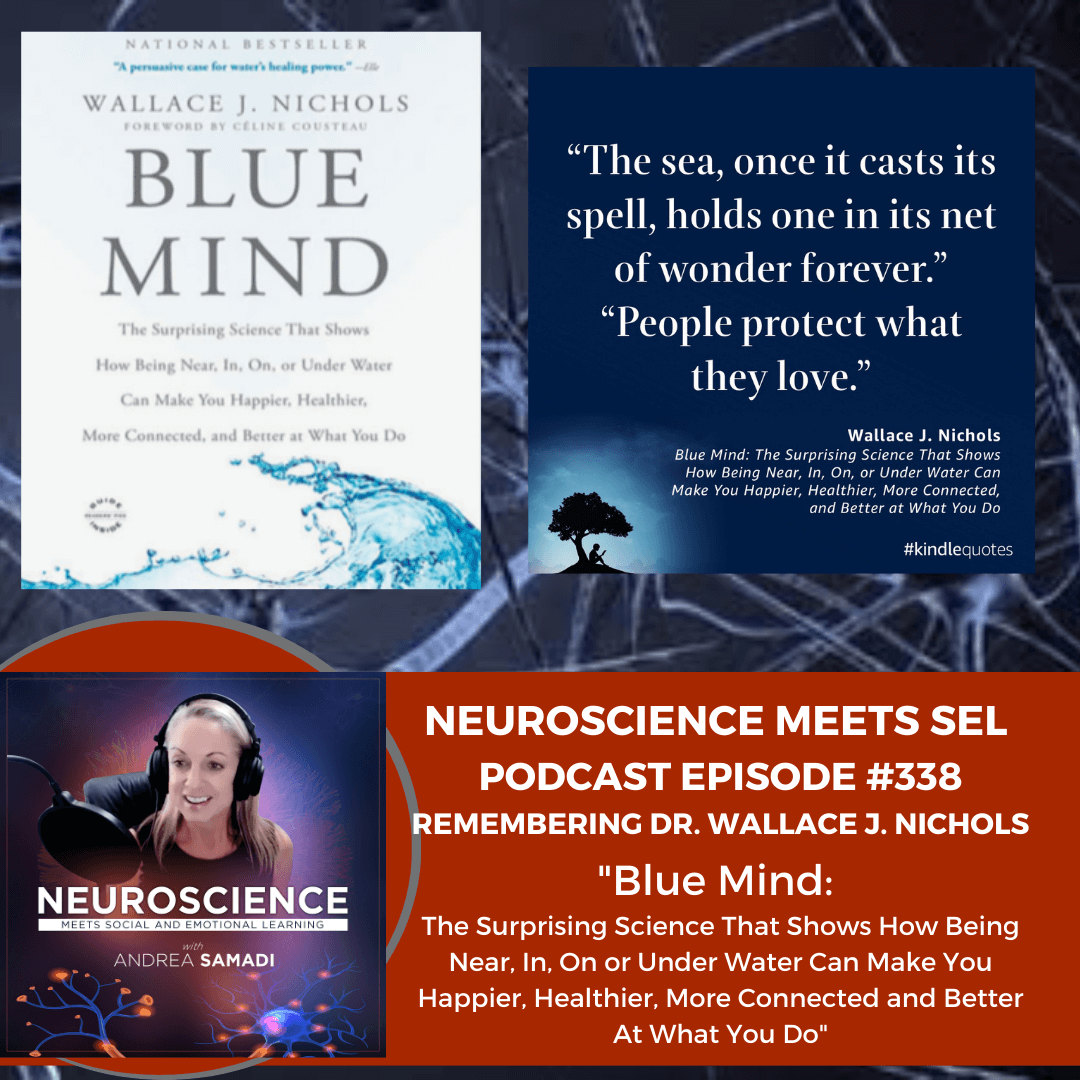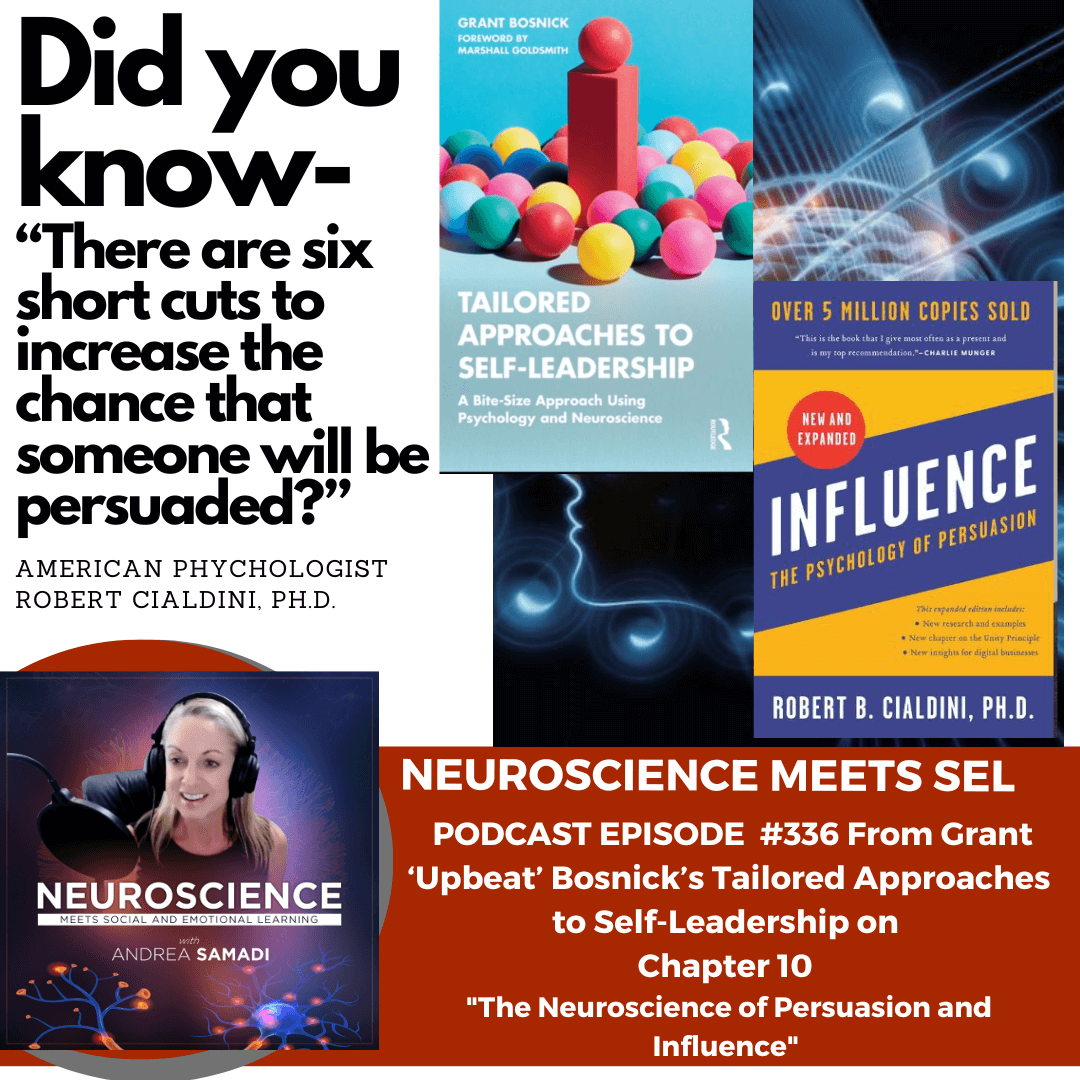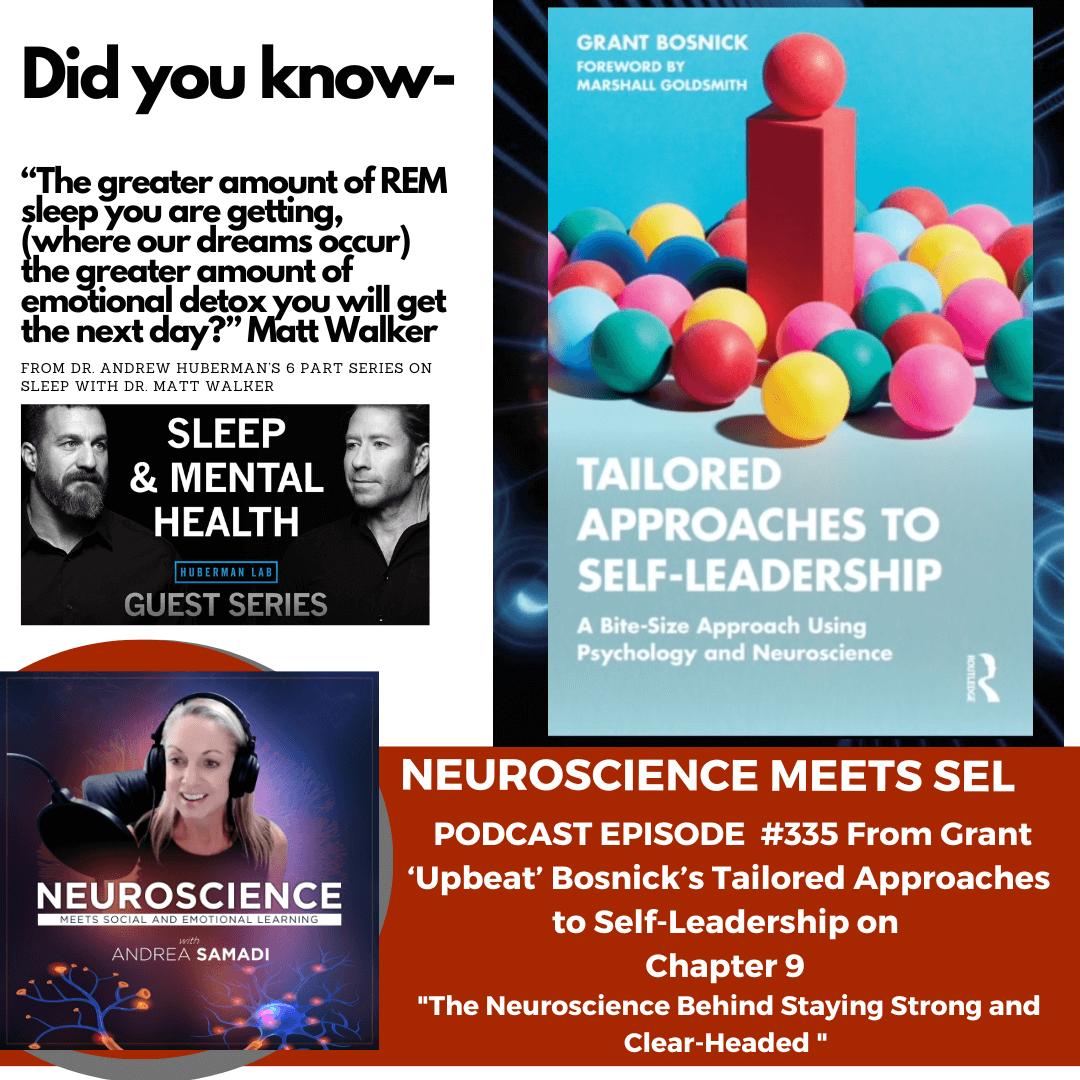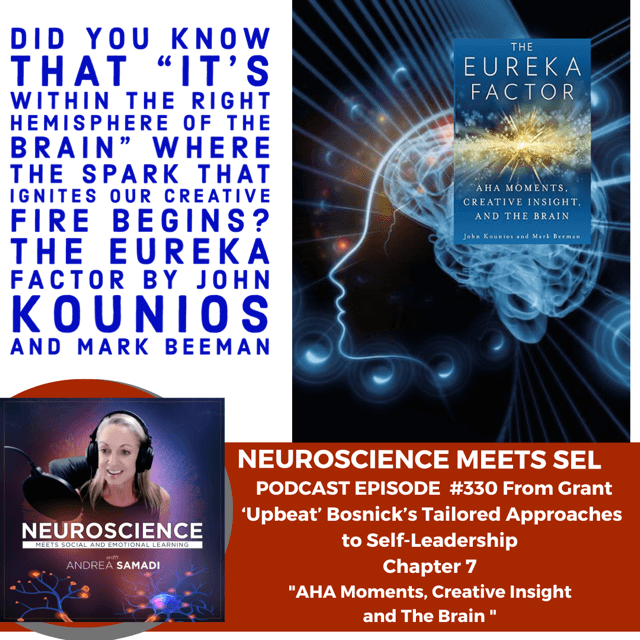Unlocking Authenticity: The Neuroscience of Relationships
Description
Welcome back to Season 12 of the Neuroscience Meets Social and Emotional Learning podcast! In episode 345, we continue our 18-week self-leadership series based on Grant Bosnick's tailored approaches. This week, we dive into Chapter 15, exploring the neuroscience of relationships and authenticity.
We revisit key insights on relationship-building from past episodes and introduce the concept of authenticity, drawing on reflections from Andrea Samadi and insights from Mohamed Issa's forthcoming book. Learn what authenticity means, how it impacts our lives, and practical steps for fostering genuine connections with others.
Discover the balance between the reflexive and reflective systems in our brain, and how understanding these can enhance our social interactions. Reflect on your unique gifts and talents, and find out how to nurture them to build deeper, more authentic relationships.
Join us for an enlightening episode that blends neuroscience with practical advice, helping you to live a more authentic life and improve your personal and professional relationships.
On today's episode #345 we continue with our 18-Week Self-Leadership Series based on Grant Bosnick’s “Tailored Approaches to Self-Leadership: A Bite Size Approach Using Psychology and Neuroscience” that we first dove into with our interview on EP #321[i] the end of January. The goal was that each week, we focused on learning something new, (from Grant’s book) tied to the most current neuroscience research, that builds off the prior week, to help take us to greater heights in 2024.
On today's EPISODE #345 “The Neuroscience of Relationships and Authenticity” we will cover:
✔ A review of one of our FIRST interviews, with Greg Wolcott EP #7, July 2019 on his book Significant 72
✔ Ch. 15 from Grant Bosnick’s Tailored Approaches to Self-Leadership book on “Relationships and Authenticity
✔ A review of Mo Issa’s definition of Authenticity from his book, The Shift: How to Awaken to the Aliveness Within
✔ The Neuroscience of Our Social Brain
✔ 4 Steps to Building More Authentic Relationships
For Today, EPISODE #345, we are moving on to Chapter 15, reviewing “The Neuroscience of Relationships and Authenticity.” We’ve covered relationships on this podcast, right back to the beginning, with Greg Wolcott EP #7, (July 2019) with his book Significant 72: Unleashing the Power of Relationships in Today’s Classrooms. Greg Wolcott, an Assistant Superintendent from Chicago, IL, has dedicated his life to this topic through his work at Signficant72.com.[iii] It’s here where you can learn more about Greg’s Relationship Mindset Movement, his book, tools, and resources to improve student-teacher relationships in the classroom. Relationships are also one of the six social and emotional competencies that we built our podcast framework upon, knowing how important relationship skills are for our well-being and future success. “Social relationships—both quantity and quality—affect mental health, health behavior, physical health, and (even our) mortality risk.”[iv]
If you’ve taken the leadership self-assessment[v], look to see if Relationships and Authenticity (in Pathway 6, our final pathway in this book study) along with biases, trust and empathy is of a low, medium or high priority for you to focus on this year. I was not surprised to see this pathway is a high area of focus for me.
While we have covered relationship building often on this podcast, the one topic we have NOT covered yet is authenticity. This is interesting timing for me, as I’m currently reading a book by a good friend, Mohammed Issa[vi], where he covers the topic of authenticity, in depth. It’s the title of chapter 8 of his forthcoming book, The Midlife Shift[vii] (Reclaiming My Authenticity). I remember years before Mo wrote this book, I could tell he was thinking deeply about this topic. In 2021 he sent me a message, and asked me “what does living an authentic life mean to you?”
I take questions from Mo seriously over the years. I know he’s not messing around. I can go back to my notes from 2021 and I can see that I wrote a few pages of “what authenticity means to me.” These notes are important for today’s episode, and when we meet with Mo the middle of next month.
I wrote: Authenticity: is being genuine or real.
What’s authentic for me personally—it’s living life according to my values. And this takes ongoing refinement. I know what’s important and what drives me daily (health is at the top of my value chart, and I’d never compromise it—it’s first, what I focus on the minute I wake up, and close my eyes at the end of each day). Living life authentically for me, is putting health as my backbone of strength, which I’ve found helps me to skyrocket my personal and professional life. It’s been this way for me, for as long as I can remember.
Living an authentic original life: means living who I am by design.
After health, I prioritize what unique expressions I want in my life—growth/challenge (come next) and these things that I value make me authentic/and uniquely me. I have to fight for these values in my life—to go after them, and keep them at my forefront, because only I know what’s best for me here. If I’m not putting health first, (for myself and my family) or learning, growing, researching, and then disseminating/sharing what I’ve learned, I’m not living my true authentic self. It will hurt my productivity if I compromise who I am, at this granular level.
I took some time off from producing episodes earlier this year, and while it was great to have this extra time, I ended up using this time for things that didn’t truly make me happy at the soul level, like this work does.
What about you?
- What does authenticity mean to you?
How do you know when you are living a truly authentic life? It’s eye-opening once we know this about ourselves, so we can course correct, when we veer off this path of authenticity.
Do you know what is special about you? What are your unique gift/talent that makes you stand out from others? A talent that you know deep inside that you must keep working and perfecting, as it’s this talent that awakens your aliveness?
I love how Mo Issa defines authenticity, which shows up as a theme in all his books. After years of self-reflection, Mo believes that “true authenticity means being ourselves—not an imitation of what we think we should be or what others want us to be. We all have a unique gift, and we must find and nurture it.” (Mo Issa, The Shift).
Getting back to Chapter 15 of Grant Bosnick’s book; what does he have to say about being authentic? Bosnick says that before we can build authentic relationships with others, he has us consider what authenticity means to us first.
He says that being authentic is: “being real, being honest and true with yourself, being vulnerable, letting go of your own ego, looking not only at what you like about yourself, but also the “darker part that can be improved or changed (I’ve heard this called our “shadow work”) and having the courage, humility, and discipline to take a hard look in the mirror at who you are.” (Chapter 15, Relationships, Bosnick).
Bosnick covers what holds us back from being authentic and he lists: “fear of being vulnerable, fear of rejection, fear of judgment, fear of abandonment, competitiveness, insecurity, self-protection, jealousy, fear of not being good enough” well I pretty much resonated with the entire list. Some of his list more than others, but right up there, for me, would be “fear of not being good enough” which I’ve been working on for the past 25 years.
When I let go, finally, of caring what other people think of me, it was probably the most freeing experience I’ve ever felt. Sure, it’s nice to be liked by others, but also, to know that not everyone will connect with who I am, the authentic me, and to let go of caring about that, is freeing.
Being Authentic:
What does this mean to you? Do any of the items on Bosnick’s list keep you from being truly authentic? He asks us some reflection questions:
- What might be holding you back from being truly authentic?
What can you do, even small steps, to help you feel more comfortable with being who you are? Being truly authentic?
Being Fake or Superficial
Bosnick goes on to describe why some people show up as fake or superficial. I always think of the character Eddie Haskel from the TV Show Leave it to Beaver when I’m thinking of a “fake” person. He was always trying to impress Mrs. Cleaver, and he came across as insincere. We can all spot people like this, and Bosnick reminds us of why people can come across this way. He says that “it’s in our comfort zone, we want to be liked, it’s easier, our ego gets in the way (and that change can be difficult) when we don’t have the courage, humility and discipline needed to take a hard look in the mirror at who we are.” (Chapter 15, Bosnick, Page 177).
What are some reasons for not being authentic?
Bosnick thinks “insecurity, jealousy, inner competitiveness, fear, self-protection” can keep us from not showing others our true selves, and in turn, we can appear fake or superficial. Brene Brown writes about The Power of Vulnerability[viii] as the “birthplace of joy, belonging, authenticity and love” in her 2012 book, with suggestions for how to prevent us from appearing fake in this process. Her book teaches us “how to practice courage, and accept imperfection, to embrace vulnerability and acknowledge our fears.”[ix] She dives into exploring the power of au

